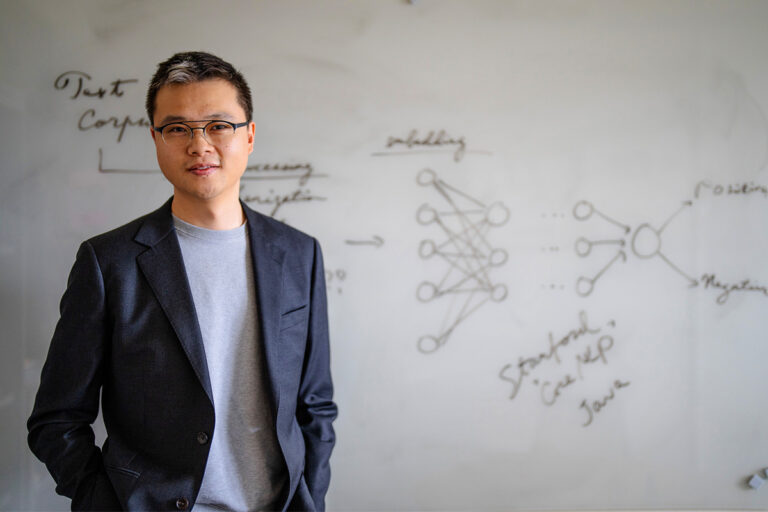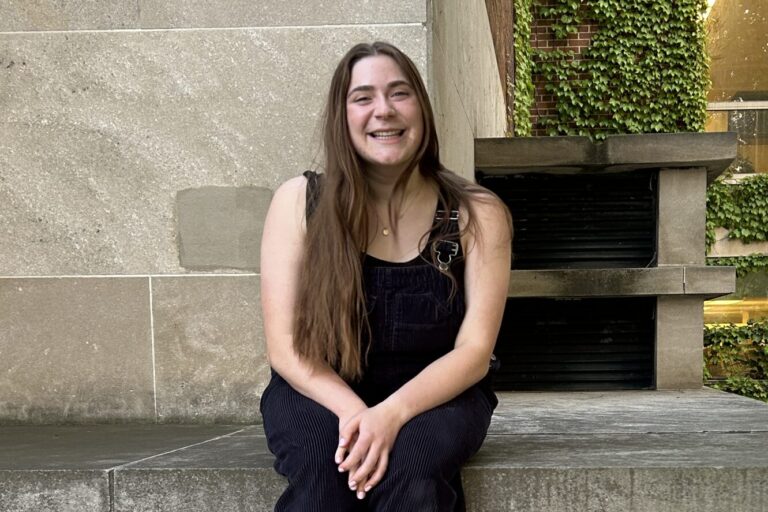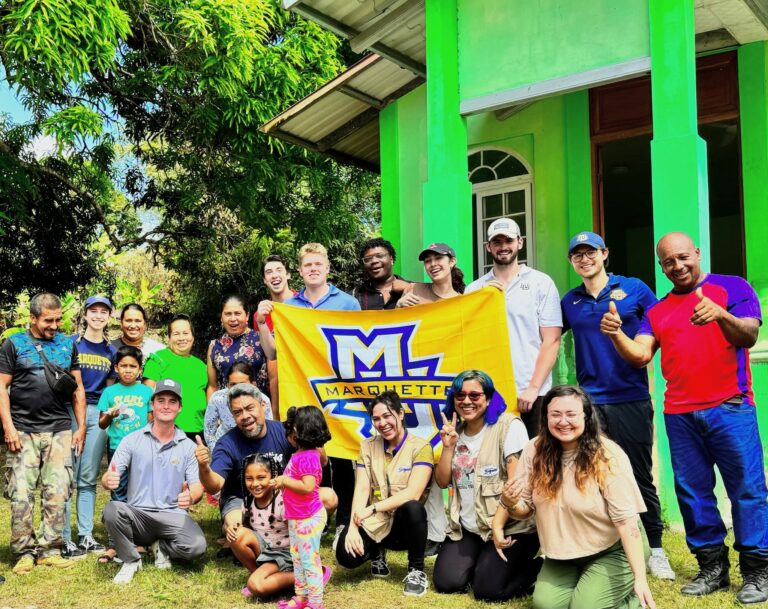Marquette University School of Dentistry has a long and proud history of educating and training Wisconsin’s dentists through a patient-centered curriculum and community-based clinical service. Throughout the school’s 128 years of operation, one constant has been a commitment to preparing dentists to provide exceptional care and service to others.
That’s why MUSoD began renovating four pre-doctoral clinics in 2022, a critical step in educating the next generation of dental students and caring for local patients who don’t have access to regular dental care. Although one new pre-doctoral clinic was included in an addition built in 2012, the existing four pre-doctoral clinics were more than 20 years old and were constructed before the latest technologies became available – and necessary – in the dental profession.
“If you’ve been to the dentist recently compared to 20 or 25 years ago, it looks a little different,” says Henry Rossi, department chair of clinical services. “Everything’s digitized now, including X-rays, records and cameras, and there’s a lot more direct patient involvement. Dentistry is pivoting to digital equipment and our curriculum has to keep up.”
That’s the goal of MUSoD’s patient-centered curriculum – to prepare dental graduates to enter the profession as completely trained general dentists. In today’s world, that means giving students access to the latest technologies in the field. “It’s a big change that’s occurring in all the schools around the country,” says Dr. Conrad Nenn, associate dean of clinical affairs. “And you have to make that change because a lot of private practices have already made the leap. The newly trained dentists have to be familiar with that technology and the basic skills to use it.”
Adding technology and light
The clinic renovations are designed to create more space for people and technology in each operatory. Phase one, which included renovating two pre-doctoral clinics, started May 16, 2022, to coincide with the end of the spring semester and ended Sept. 6, 2022, at the beginning of the fall semester. It also marked the beginning of construction on a new digital innovation center. Phase two, which included renovating the two remaining pre-doctoral clinics, began in early May 2023 and ran through student orientation in August 2023. Finally, construction will finish with upgrading the seven specialty clinics, six classrooms and patient areas.
The completed renovations created more open space in the clinics through internal realignment of walls and rooms, which lets in more natural light. The original round rooms were moved from the center of the clinics to off the corridor, allowing use of these spaces for other activities without interrupting clinic operations. In addition, entrances were expanded for a more welcoming feel.
“It creates a more inviting and well-lit space,” says Kathy Kugi-Tom, project manager for the Department of Facilities Planning and Management. “We opened up the entrance to be a lot more inviting, and we gave students a little more room in the operatories so the assistant and doctor can do their work more comfortably and ergonomically.”
Most importantly, the renovations added square footage to the operatories without expanding the footprint of the building.
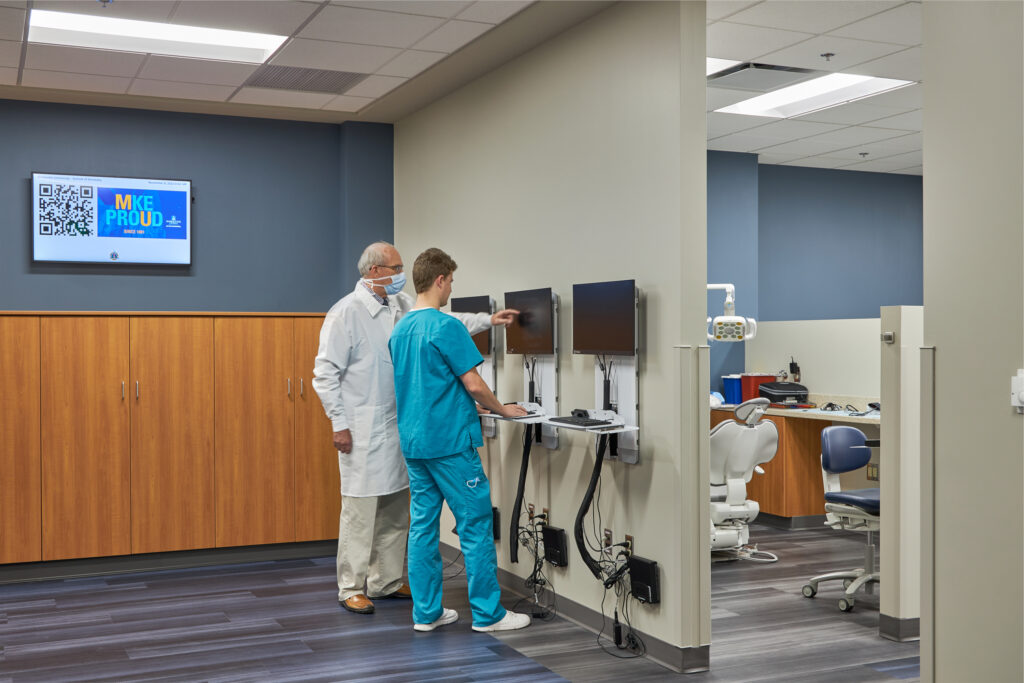
The four clinics originally had 24 chairs each, but the renovated clinics now have 23 chairs, giving patients, faculty and students more room to function. Despite losing a chair in each clinic, what students gained was invaluable.
“Everybody loves the appearance when you walk in because it’s much more airy and open,” says Dr. Rossi. “You can actually see daylight when you walk in! The new LED lights, fresh paint and different flooring – it all has that ‘new car’ feel to it.”
“Besides the aesthetics and addition of current technology in the spaces, we were provided the opportunity to upgrade and improve the flooring, cabinetry and traffic flow throughout the space to better attend to the needs of our patients,” says Dr. William Lobb, former dean of the School of Dentistry.
D4 student Abigail Yurs agrees with that assessment. “There’s so much more room and the accessibility is so much better than the other clinics. It’s really nice to have extra space so everybody’s comfortable. It’s so much brighter and the functionality is better, too,” she says.
Yurs has worked in several off-site clinics, and she believes the new equipment and technology will better prepare her to enter a similar clinic experience after graduation. “The renovated clinic experience will make it easier to transition from school to private clinics,” she says.
“I think change is always great, especially when it’s done with such great intent,” Yurs says. “These new clinics are for the benefit of patients and students, and will help us stay on track with the latest technology and standards. I’m very excited, and I think my patients will be excited as well.”
Technology enhancements include additional monitors in each operator so students can more easily share images and information with patients in the chairs. Wireless keyboards enable students to sit face-to-face with patients while taking notes or adding information to their records.
“Before, you had a computer monitor behind the patient’s head, buried in a cabinet with a small screen, and patients had to crane their necks around to see anything,” says Kugi-Tom. “Now there’s a more ergonomically friendly computer behind the patient, plus another monitor on the chair so doctors and students can show the patient their X-rays or documents. It’s a more patient-friendly design and supports teaching about the patient-care side of things.”
Patient chairs now have LED lights and a Bien Air electric motor system on new A-dec chairs, which enables high-precision performance and reliability during procedures. New X-ray equipment was installed to upgrade the clinic’s imaging capabilities. The rehabbed clinics also incorporate standard technology that wasn’t previously available in the clinics, such as electric hand pieces.
“This isn’t really new technology, but we didn’t have it in the existing pre-doctoral clinics,” says Dr. Nenn. “It’s great to now have it in the remodeled clinics.”
Investing in innovation
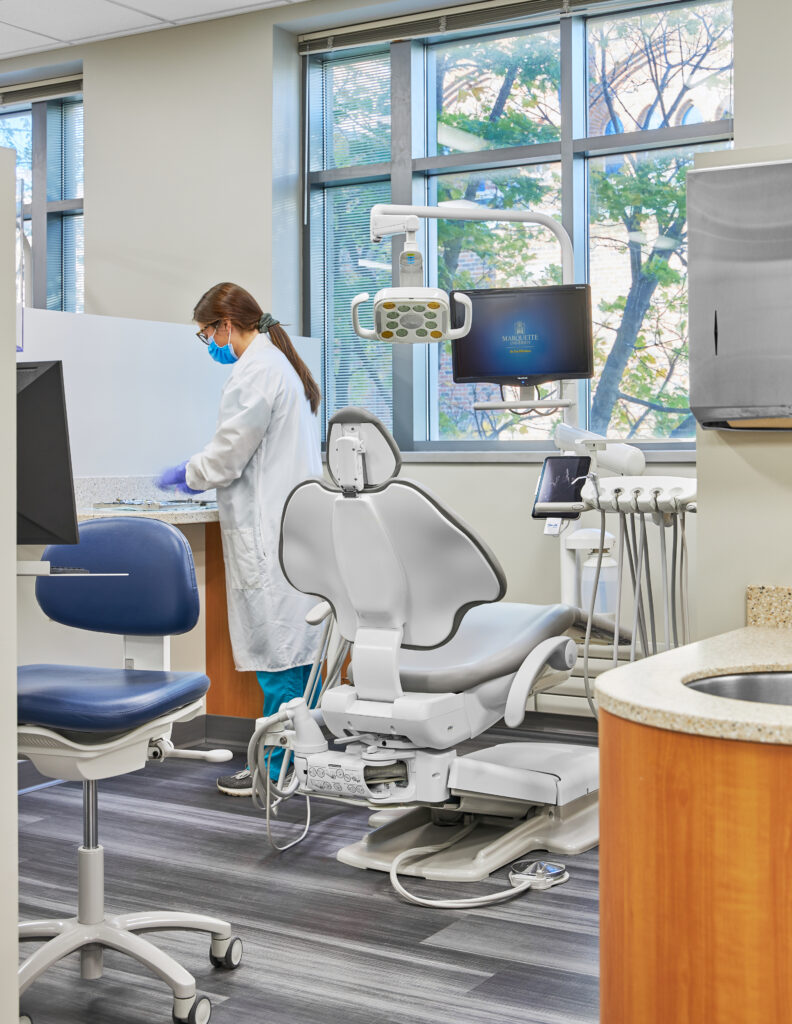
A major goal of the renovations underway is to create a separate new “digital dentistry innovation center” that will house a five-chair clinic where students can learn how to use the digital tools of dentistry, including digital scanners, CAD/CAM milling machines, 3D printers and more. Dr. Nenn calls the innovation center the school’s “digital workflow area,” which will be centrally located in the dental school.
Here, students can use digital scanners to make an intraoral scan of patients’ mouths to create a 3D model, then send that digital file to the adjacent laboratory space for design and production of the restoration. This will allow students to learn not only the traditional impression and stone model methods, but will familiarize them with the latest technology in dental scanning and CAD/CAM production.
“The innovation center is important from an educational standpoint,” says Dr. Nenn. “We’re expected to keep up to date and digital technology is becoming the standard of care in dentistry across the country. Now it’s time to introduce our students to that.”
Although students already have access to digital training in MUSoD’s simulation lab, the innovation center will give them more experience using technology in a patient-care setting. “We already had implemented that in the clinics, but it will be easier to do now because of the innovation center,” says Dr. Nenn.
Enhancing dental education for today and tomorrow
According to Dr. Nenn, these renovations will give MUSoD an edge in attracting dental school students. “It’s a modern clinic that will provide students with state-of-the-art equipment and technology to work with so they can take that with them when they become providers,” he says. “Things are changing rapidly, but our new clinics will be ahead of the curve compared to other schools.”
Dr. Rossi agrees, saying, “We’re doing the best we can to keep current. It’s a huge pivot, but these clinic renovations will keep MUSoD in the game.”
Some MUSoD alumni had the chance to tour the two newly renovated clinics in early September.
“The new lab and technology almost make me wish I was back in school again!” says Dr. Jack Sadowski, D ’68. “Dean Lobb and staff have been rightly proactive, and I applaud those involved for having the foresight to enhance the experience for patients and our future dentists. The remodeling process is ongoing, but the investment in dental education is worthwhile for our next generation.”

